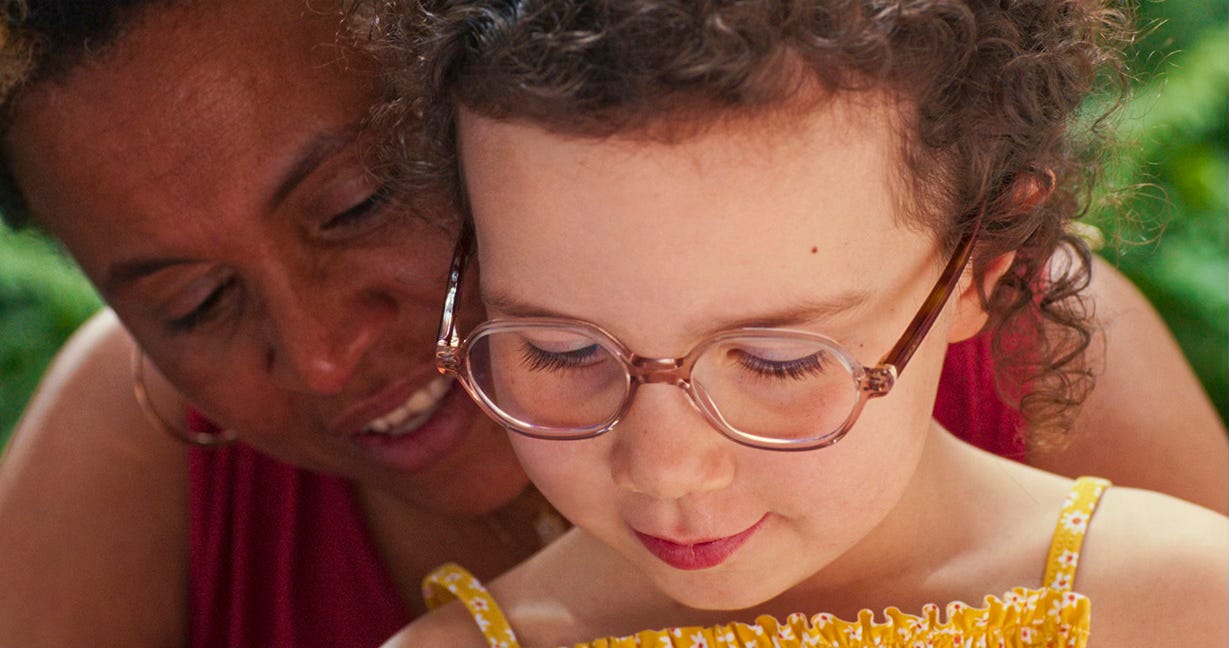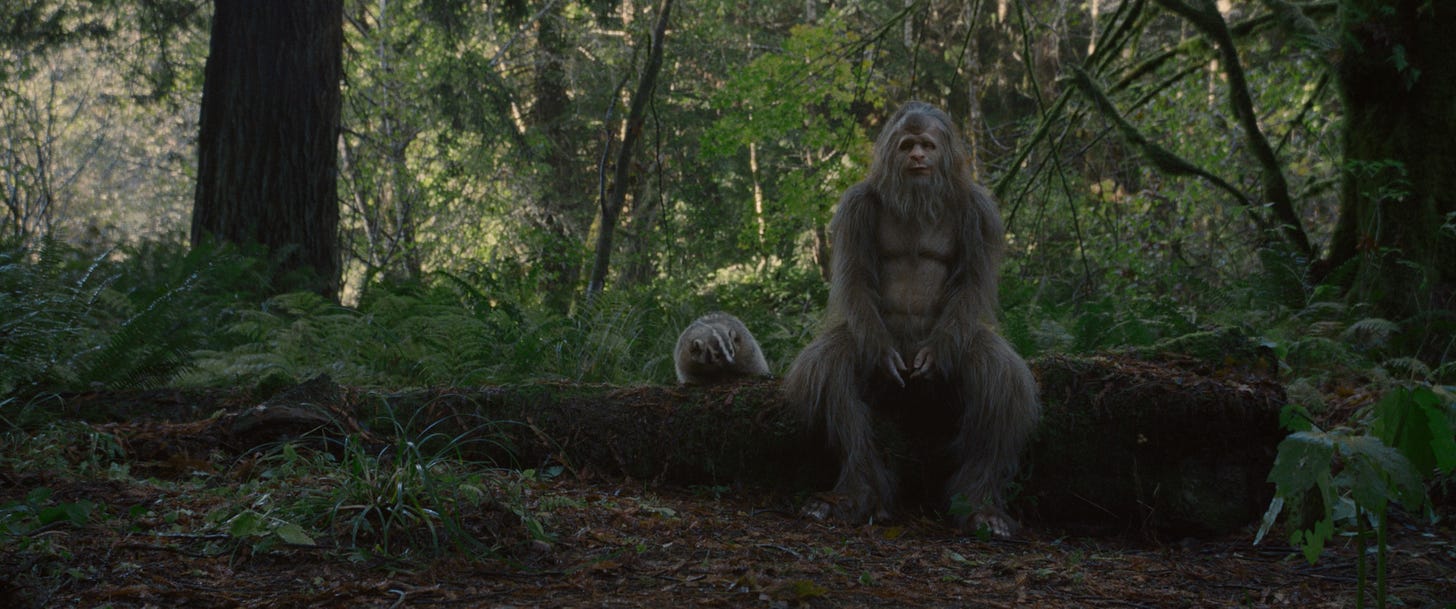I tend to go through phases with going to the cinema, letting it play second fiddle to theatre and often forgetting to go until something has left the movie theatres. But I’ve managed several films this week, partly because I was invited to go on Front Row (listen live tonight on BBC Radio 4 from 7.15pm, or on BBC Sounds whenever you like once the show has gone out) and that’s what they wanted me to do. So you’re getting a lot of it today.
This week
The first is Àma Gloria, which is in cinemas now - a gorgeous little French coming of age drama, tightly focused around an astonishing central performance by an unknown actress called Louise Mauroy-Panzani. Astonishing partly because it’s so convincing, complex and nuanced but largely because Mauroy-Panzani is six years old. She’s absolutely outstanding.
She plays Cléo, the daughter of a widower, whose beloved nanny, Gloria, has to return home to Cape Verde to care for her own children after a death in the family.
Her father is harried by the responsibilities of looking after Cléo while working full time (filmmaker Marie Amachoukeli is careful not to judge him for not quite coping, showing the father-daughter relationship to be loving and communicative) and agrees to send her to visit Gloria for the summer, only for Cléo to discover, gently but life-changingly, that the universe does not revolve around her.
The camera is often very close up, which means that you nearly always feel like you’re seeing Cléo’s point of view. There’s one scene where she admits why she did something bad, and you can clearly see confusion, guilt, and deep shame. These are often the moments in child performances that fail to hit the mark but she nails it distressingly well. I wonder whether Mauroy-Panzani’s extreme youth means she’s able to access imagination in a way that a child of a more self-conscious age might not?
What really struck me though is that although it revolves almost entirely around Cléo, this is actually a film about parenthood. What I was left with was a deep sadness for Gloria - played here beautifully by Ilça Moreno Zego - and women like her; this large but very particular cohort of women across the world who leave behind their home, and very often their own children, to go and care for someone else’s, far away, and send back money.
They put all that love and care that would otherwise be lavished on their own children into these other little kids, forming a close bond, and so regardless of what they do, whether they stay for years or go home, they must always be saying goodbye to a child, never able to be fully a mother to any of them. The final scene drives that home in a way that I didn’t expect. Stunning.
Sasquatch Sunset is not even remotely similar, except in the very loose sense that it’s a family drama, but since that family is one of four sasquatches the link is so tenuous that if I had an editor they’d probably make me change this bit.
I have never seen anything like it. It follows the family (played by Riley Keough, Jessie Eisenberg, Nathan Zellner and Christophe Zajac-Denek in hairy bodysuits and major prosthetics) over the course of a year as they wander the lush, peaceful wilds of a vast North American redwood forest.
We see them shagging, grooming, eating curious plants and more disgusting things (don’t watch it while you’re eating, I made that mistake) and building small overnight shelters that they dismantle the next morning, perhaps instinctively mindful that there’s something out there, though they know not what, whose attention they don’t want to attract.
They appear, at times, to be on the brink of an evolutionary breakthrough that would bring them disconcertingly close to us - they have already evolved the ability to pretend, and a form of long-distance communication, but counting is proving a trickier hill to climb. Signs of human life don’t creep in for 45 minutes, but when they do, it’s ominous, and gets more so.
The film has the low-key vibe of a nature documentary, with a soundtrack made up almost entirely of woodland noises with the occasional squeal of experimental jazz and one, very impactful song. It looks great - lush green forests and wafty grasslands, and the costumes are both very clearly hairy suits and also fairly easy to forget about. But it’s also not important that you forget, it doesn’t matter, this isn’t cinema verité.
Keep reading with a 7-day free trial
Subscribe to The London Culture Edit to keep reading this post and get 7 days of free access to the full post archives.




